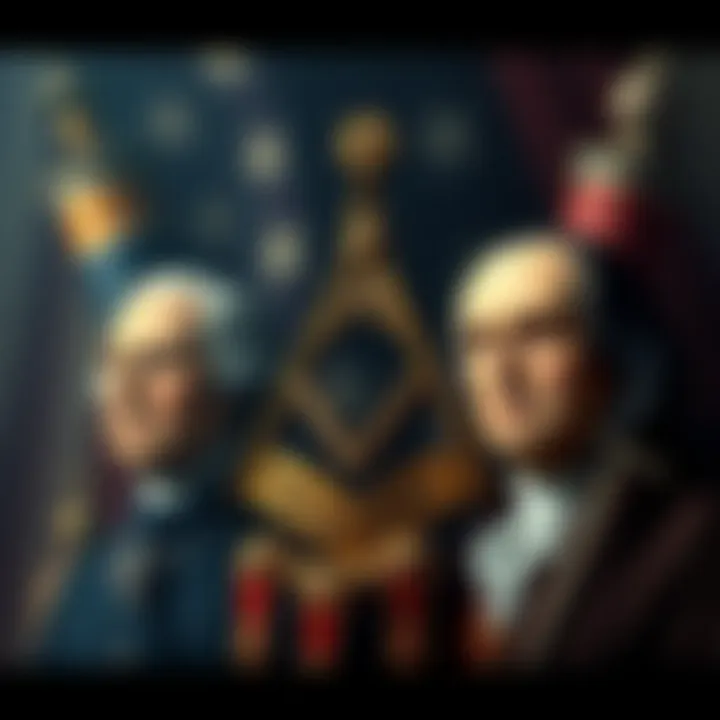A recent surge of discussion has highlighted the connections between Freemasonry and America's Founding Fathers, raising questions about the secret society's influence on early governance. Notably, a letter warning George Washington about the Illuminati's reach within Freemasonry adds depth to this debate.

Illuminati Warning to Washington
One comment points out that Washington received a letter from a German man alerting him to the Illuminati's growing influence within Freemasonry. While Washington acknowledged the threat, he believed it wouldn’t infiltrate American lodges.
Key Figures in Freemasonry
George Washington: Not only the most recognizable Freemason but also a Master of his Virginia lodge, he prominently wore Masonic regalia during cornerstone ceremonies.
Benjamin Franklin: A significant figure, Franklin was active in both American and French lodges, publishing Masonic literature that shaped public views.
John Hancock: Known for his bold signature on the Declaration of Independence, Hancock was deeply involved in Freemasonry.
Paul Revere: Beyond his midnight ride, Revere served as Grand Master of the Massachusetts Grand Lodge.
James Monroe & James Madison: Both believed to have Masonic connections, though less publicized than Washington and Franklin.
Public Perception and Themes from Comments
Recent comments reflect skepticism and intrigue:
"A group of people with abundant resources making moves doesn’t even sound like a conspiracy."
This shows a shift toward viewing the influence of wealthy members as expected rather than mysterious.
Another comment points to connections between Freemasonry and the Mormon Church, asserting it is a project hiding Templar treasures, highlighting conspiracy theories surrounding influential organizations.
Themes Emerging from Comments
Wealth and Influence: Many people are convinced that wealthy individuals regularly leverage organizations like Freemasonry to maintain control.
Fear and Skepticism: As discussions about organizations like the Illuminati grow, skepticism about their power is increasing, with fewer fearing such groups.
Interconnected Organizations: New theories are tying Masonic practices to other groups, further fueling curiosity.
Key Insights
💬 "Washington acknowledged the Illuminati was gaining influence." - This comment illustrates concerns over secretive groups.
🔍 Many perceive wealthy Freemasons as normal but furthering their own interests.
🚀 Comments linking the Mormon Church to Freemasonry illustrate growing speculation about other influential networks.
As the dialogue surrounding Freemasonry and its foundational role continues, it raises critical questions about transparency and authority in today’s governance. What implications, if any, do these discussions have for our understanding of modern leadership?
